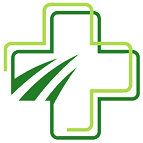Traditional cardiac care typically involves frequent in-person visits to cardiologists, primary care physicians, and specialists. However, the healthcare landscape has evolved significantly with technological advancements enabling effective remote monitoring and virtual consultations. This article explores how online doctors transform cardiac care delivery, providing valuable support to patients with various heart conditions while complementing traditional in-person medical services.
Remote Monitoring of Cardiac Parameters
Modern technology has revolutionized how cardiac patients can be monitored outside clinical settings. Online doctors now leverage various connected devices to track essential cardiac parameters, including:
- Heart rate and rhythm through FDA-approved smartwatches and ECG monitors
- Blood pressure using Bluetooth-enabled home monitors
- Oxygen saturation levels with portable pulse oximeters
- Physical activity patterns through wearable fitness trackers
These devices transmit data securely to healthcare platforms where cardiologists and specialized nurses can review trends, identify concerning patterns, and intervene before situations become critical. This continuous monitoring approach represents a significant advancement over the periodic snapshots provided by traditional office visits.
Virtual Consultations for Cardiac Care
Telemedicine platforms now facilitate comprehensive cardiac consultations that address many aspects of heart disease management. During these video appointments, online doctors can:
- Review patient-reported symptoms and concerns
- Assess medication effectiveness and side effects
- Provide education about condition management
- Discuss diagnostic test results
- Make treatment plan adjustments
- Coordinate care with other specialists
navigate here to access cardiologists and other cardiac care specialists regardless of geographic location, eliminating transportation barriers that often prevent consistent follow-up care. This accessibility is particularly valuable for cardiac patients with mobility limitations or those living in underserved areas with limited access to cardiovascular specialists.
Medication Management and Optimization
Heart conditions typically require complex medication regimens that frequently need adjustment based on patient response, symptom changes, or test results. Online doctors excel at medication management through:
- Regular virtual check-ins to assess medication effectiveness
- Electronic prescription services for immediate regimen adjustments
- Monitoring for potential drug interactions when new medications are added
- Education about proper medication administration and timing
- Strategies to improve adherence to prescribed therapies
This attentive approach to pharmaceutical management helps optimize treatment outcomes while minimizing adverse effects, which is significant for cardiac medications with narrow therapeutic windows.
Cardiac Rehabilitation Support
Following cardiac events like heart attacks or procedures such as bypass surgery, rehabilitation is crucial for recovery and preventing future complications. Traditional cardiac rehabilitation programs require frequent in-person visits, creating access barriers for many patients. Online doctors now offer virtual cardiac rehabilitation options that include:
- Guided exercise programs tailored to individual capabilities
- Nutritional counseling for heart-healthy diets
- Stress management techniques
- Smoking cessation support
- Education about condition management
These virtual rehabilitation programs typically show comparable effectiveness to traditional models while significantly improving participation rates due to their accessibility and convenience.
Emergency Preparedness and Intervention
While online cardiac care focuses primarily on prevention and management, these systems also incorporate emergency protocols. Patients navigate here to receive clear guidance about recognizing warning signs requiring immediate attention and when to seek emergency services. Some advanced remote monitoring systems can detect potentially dangerous cardiac events and alert healthcare providers or emergency services when necessary.
Online doctors have transformed cardiac care delivery by providing consistent monitoring, timely interventions, and accessible specialist consultations. This approach mainly benefits patients requiring frequent follow-up, those managing complex medication regimens, and individuals living with chronic heart conditions requiring ongoing supervision.


